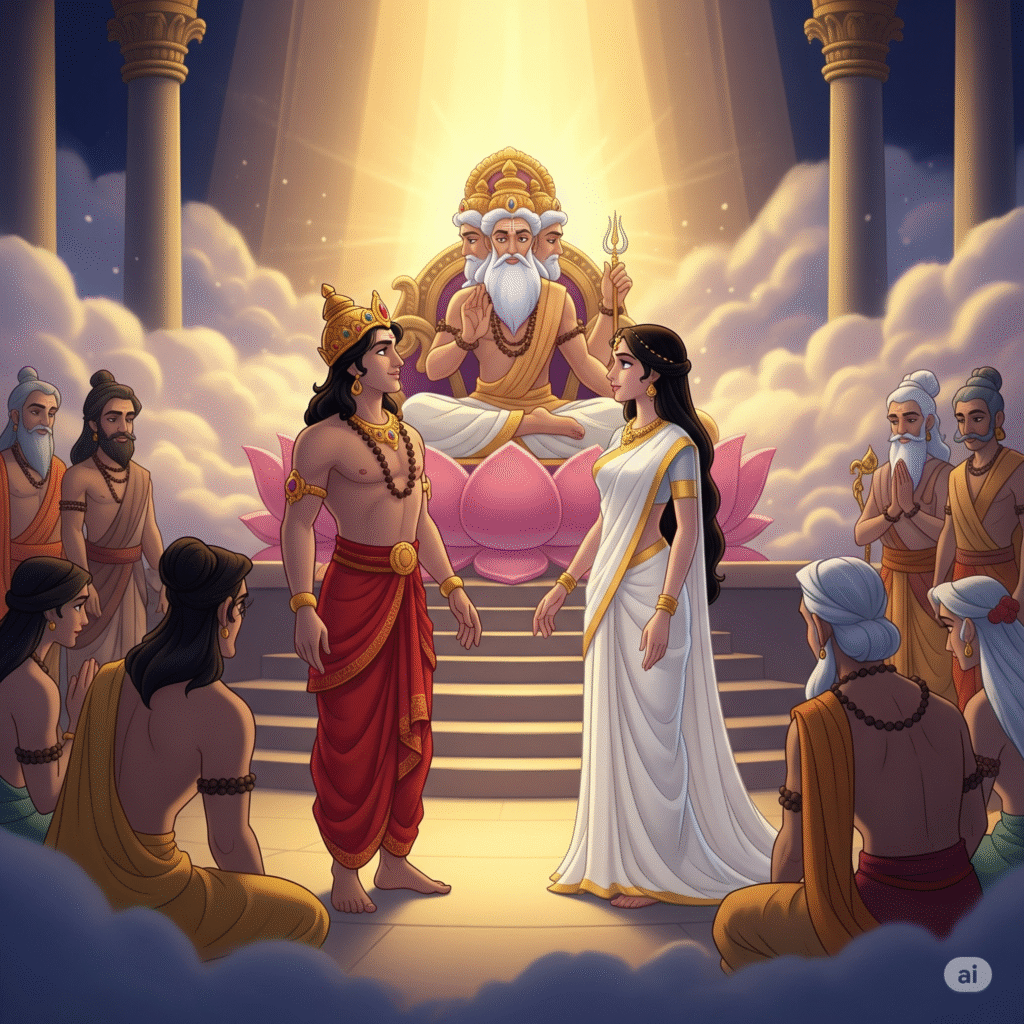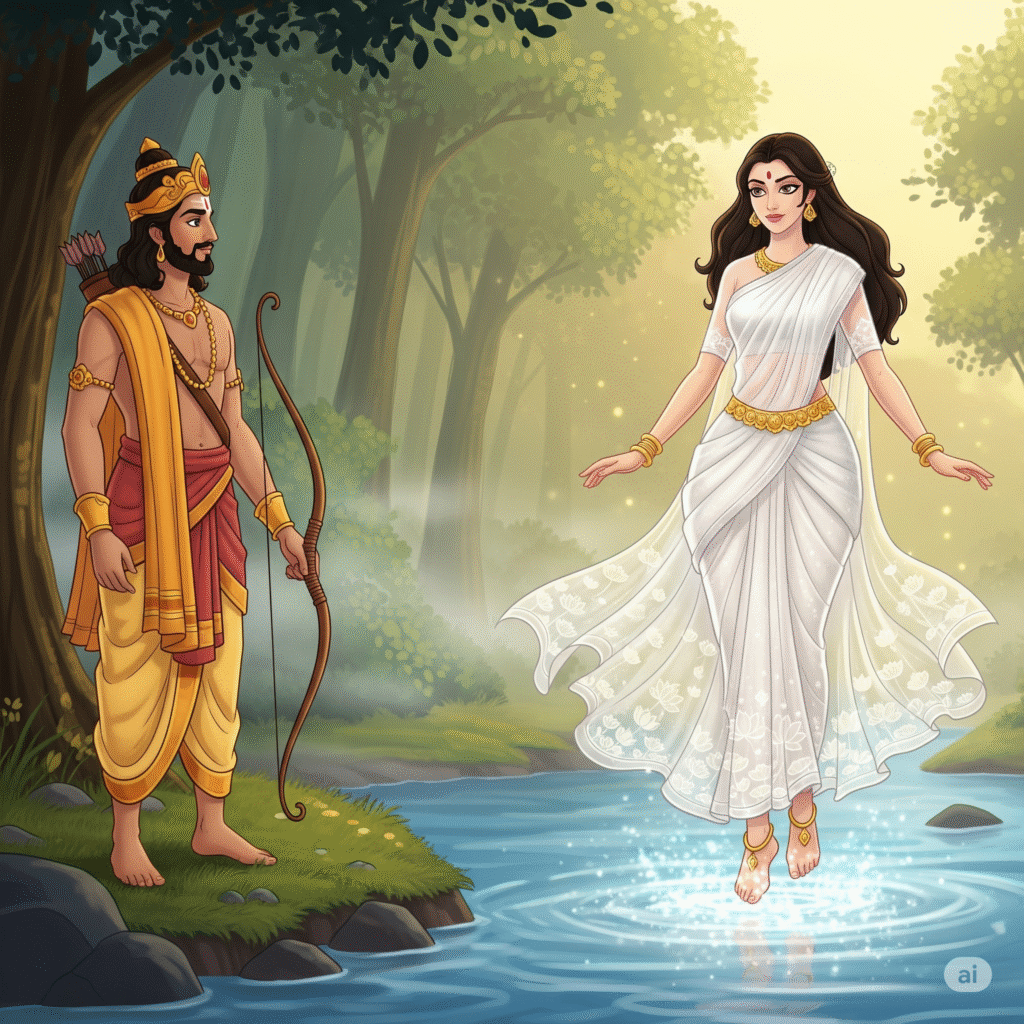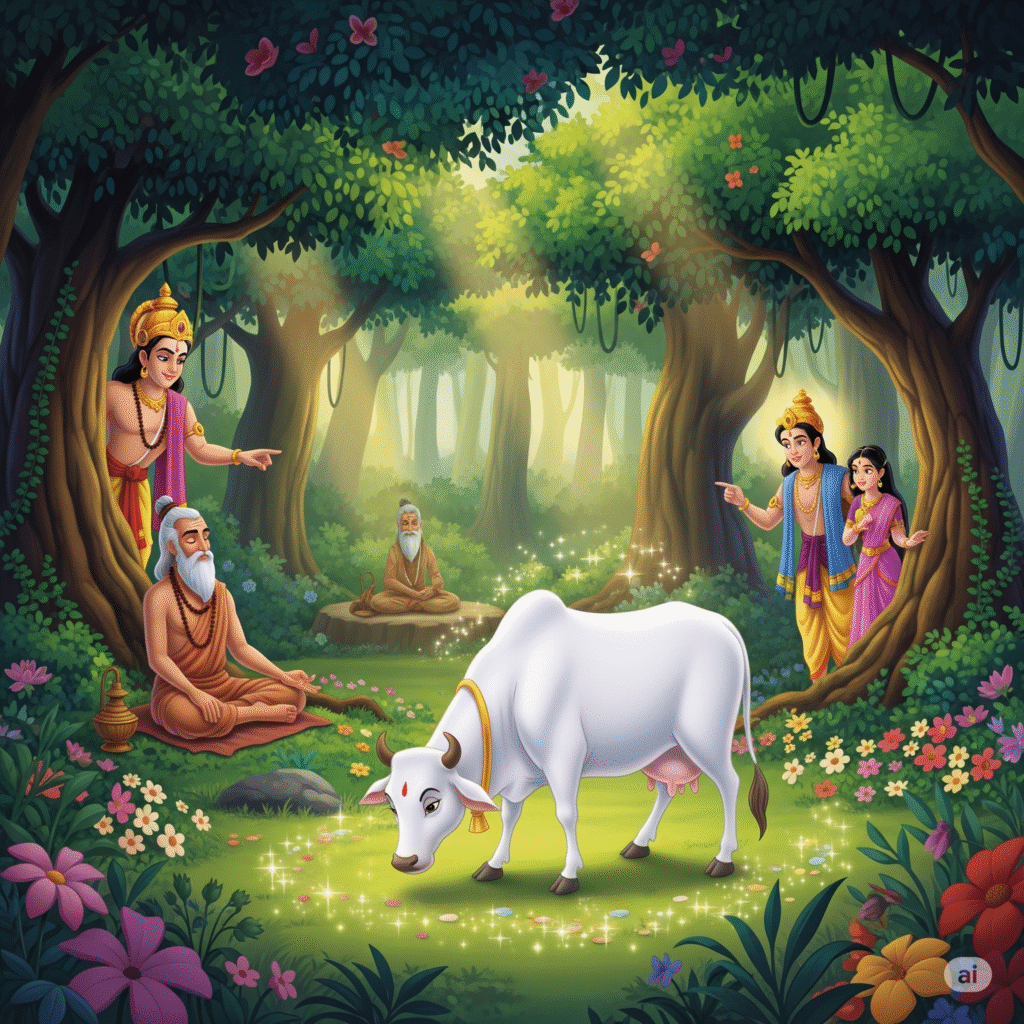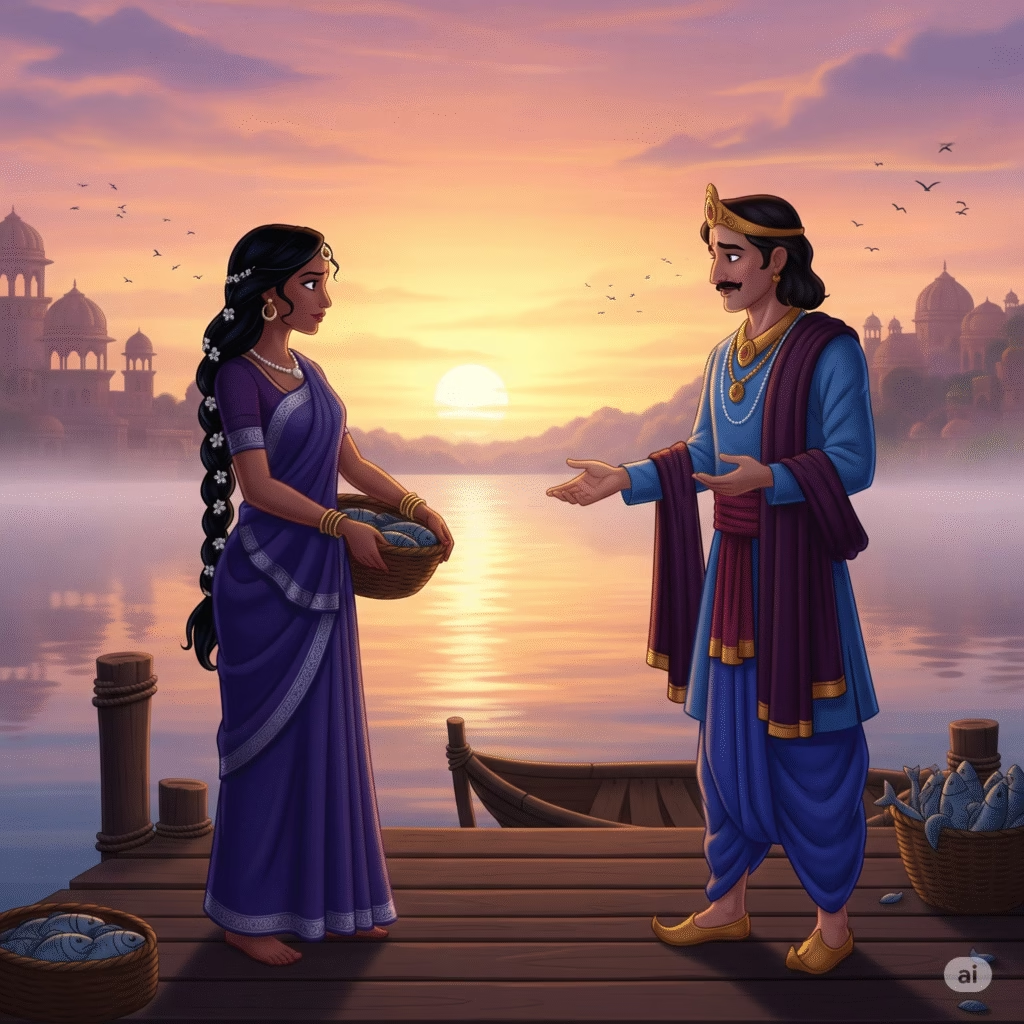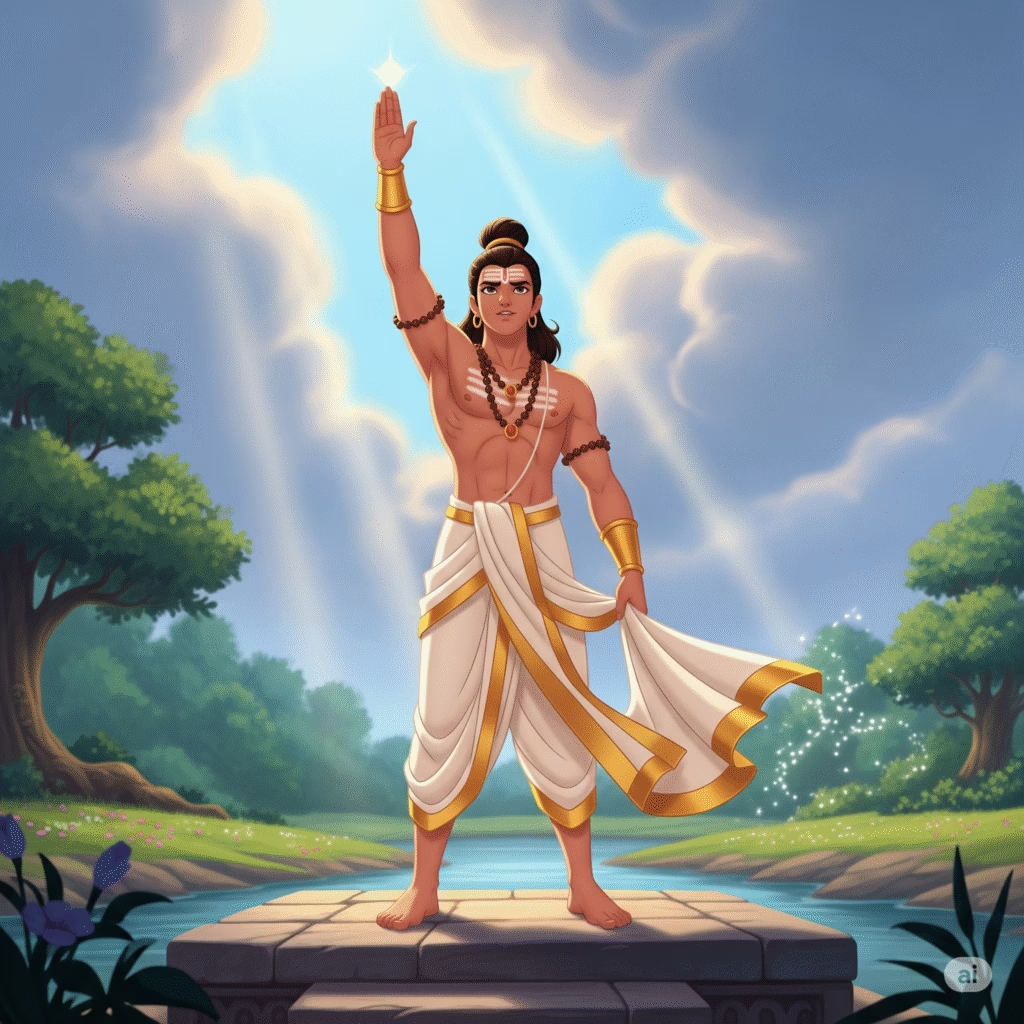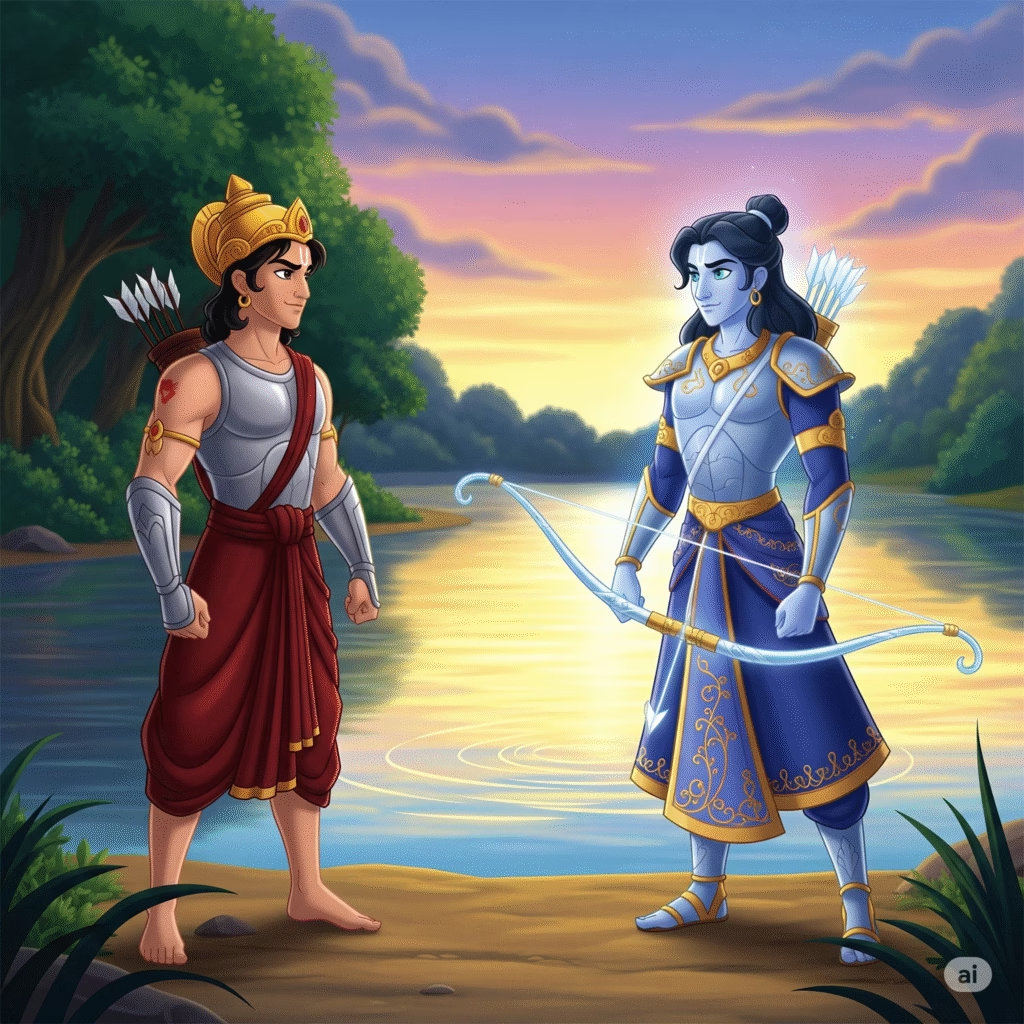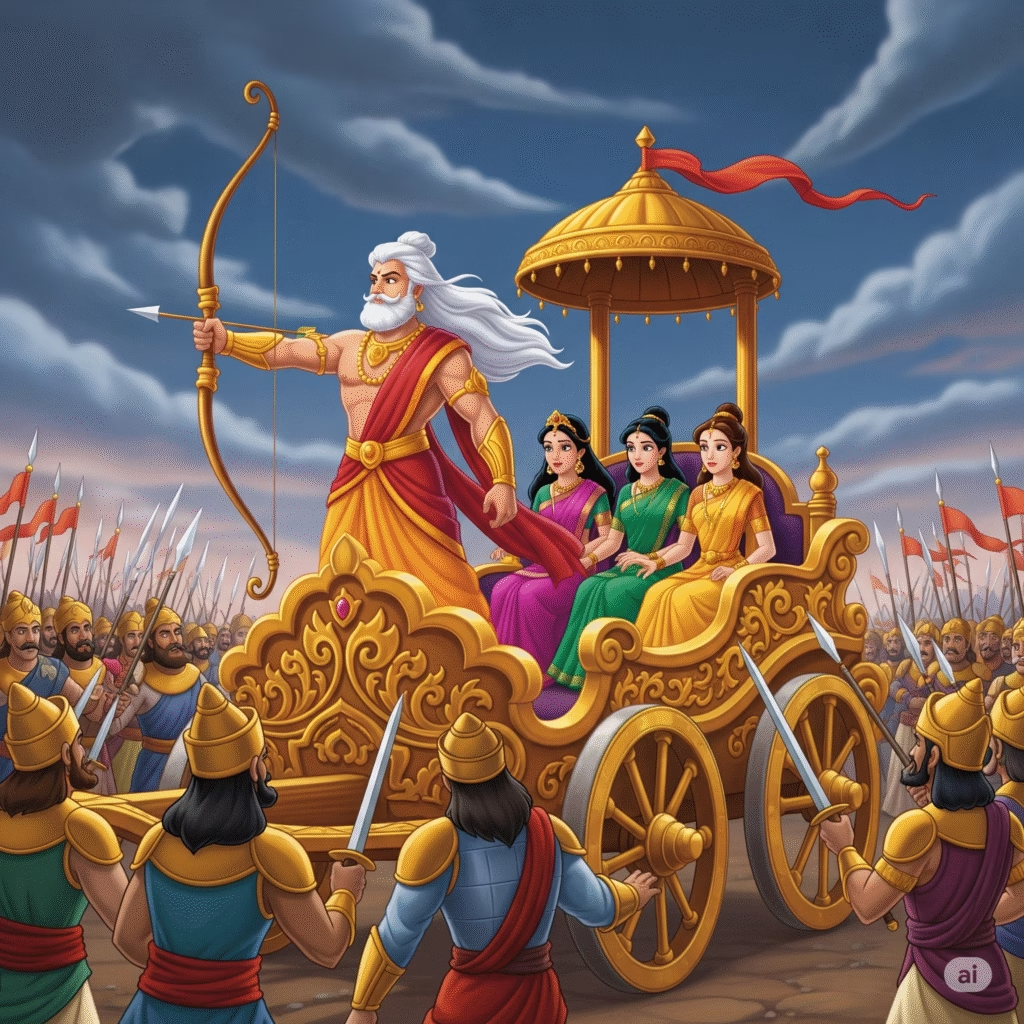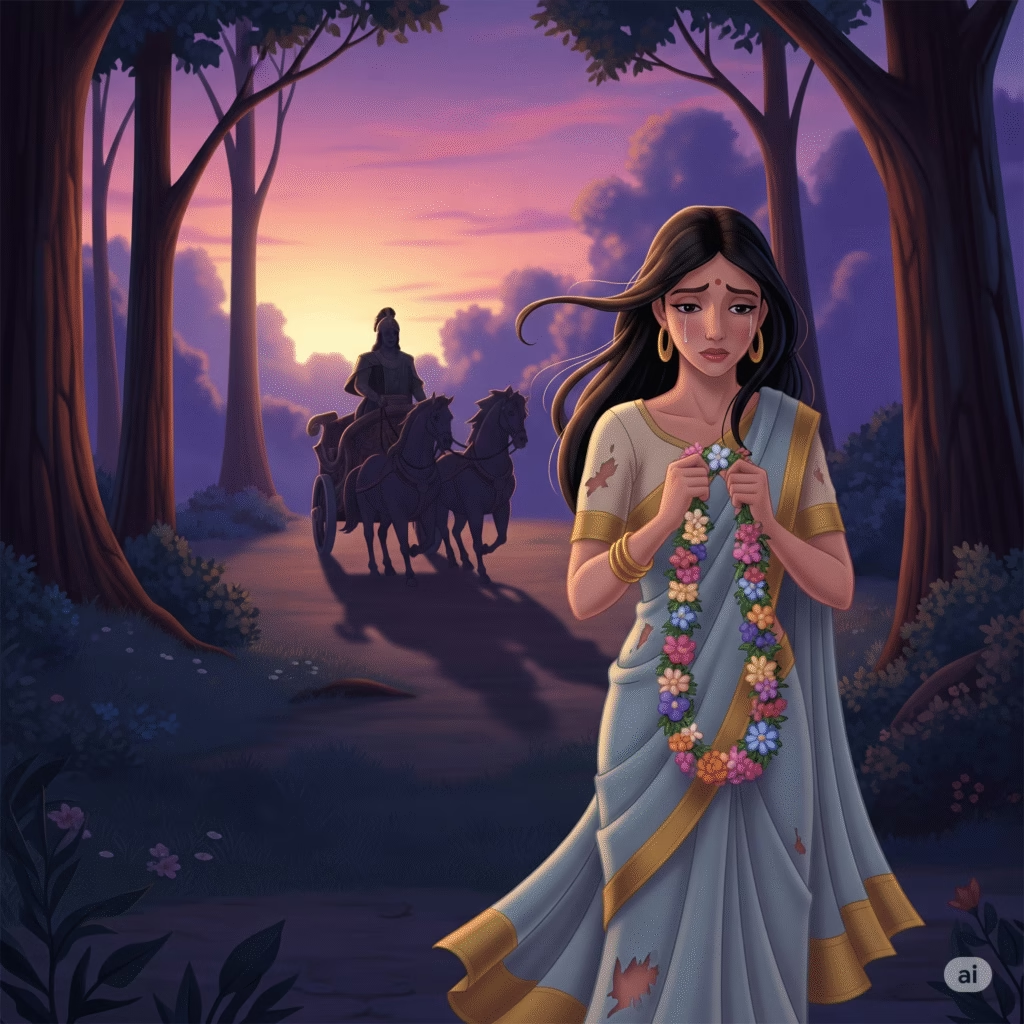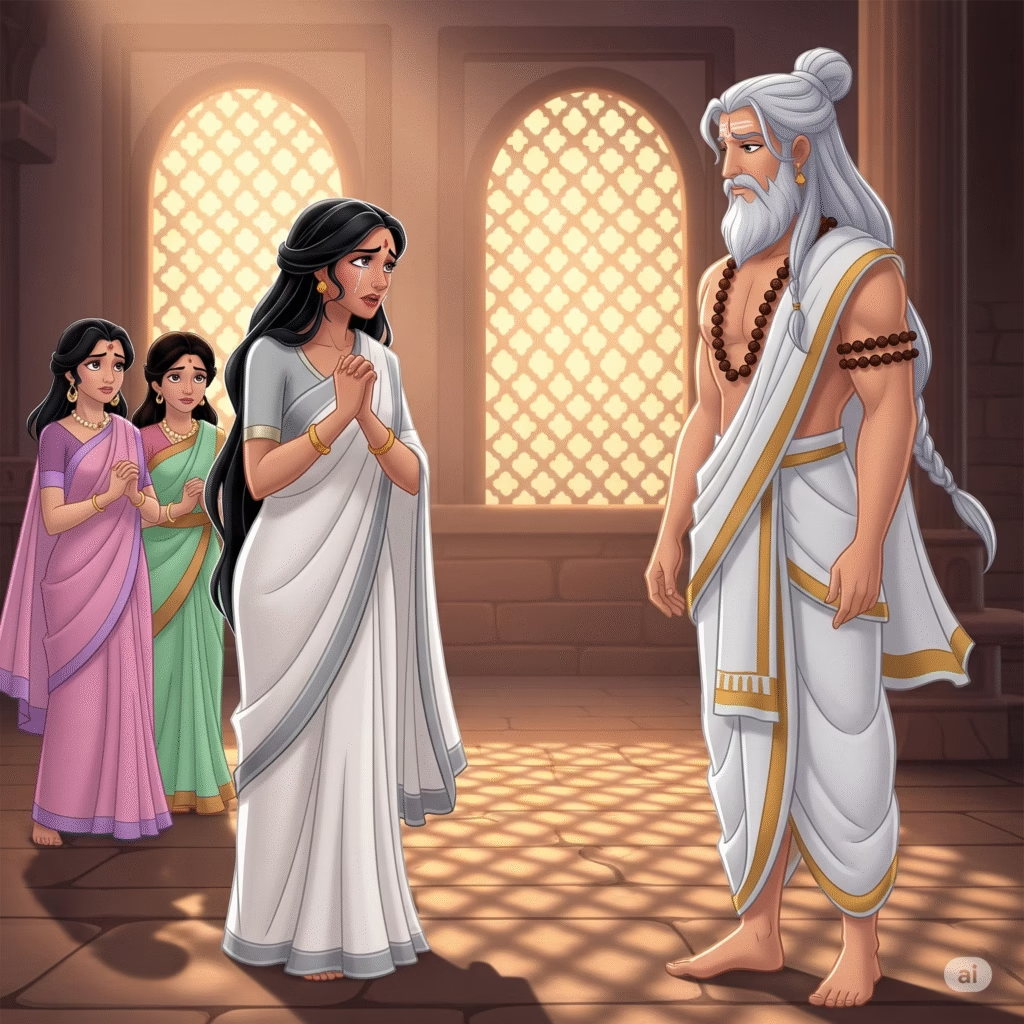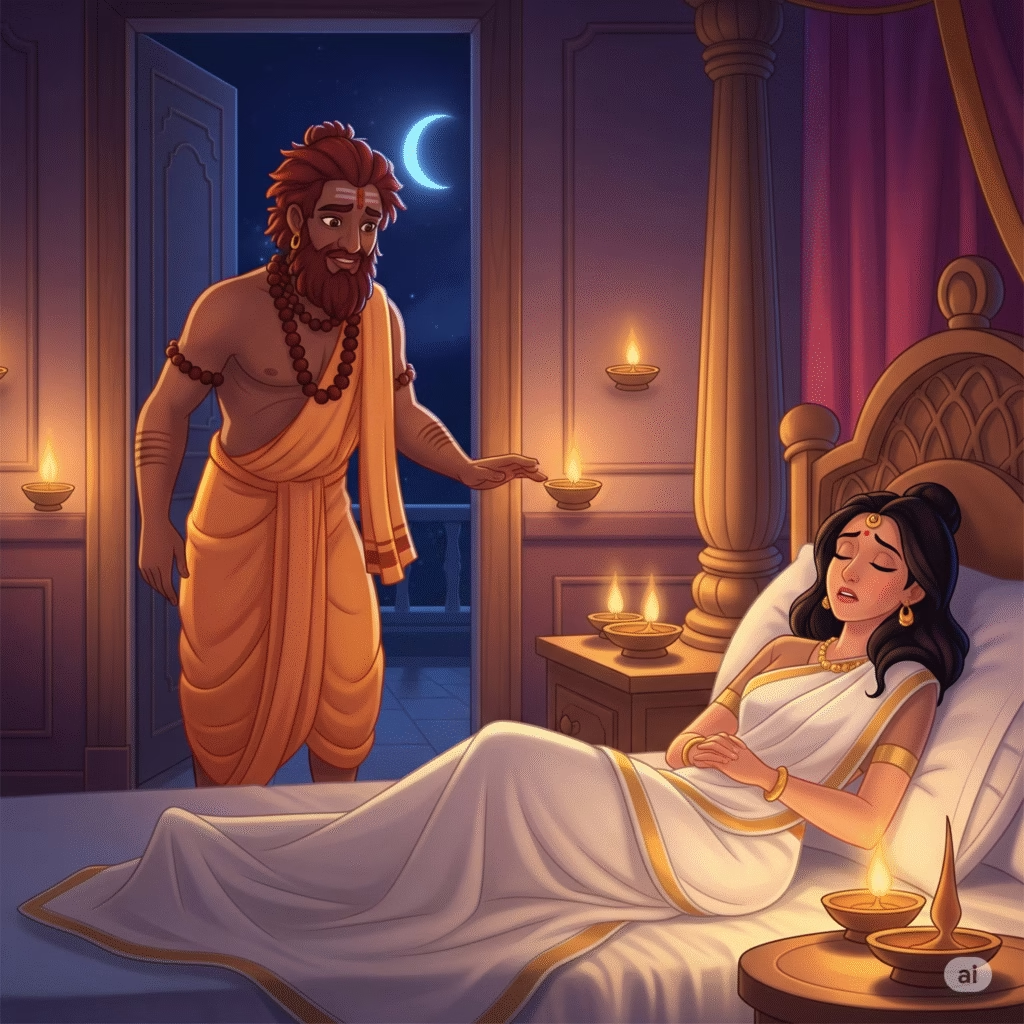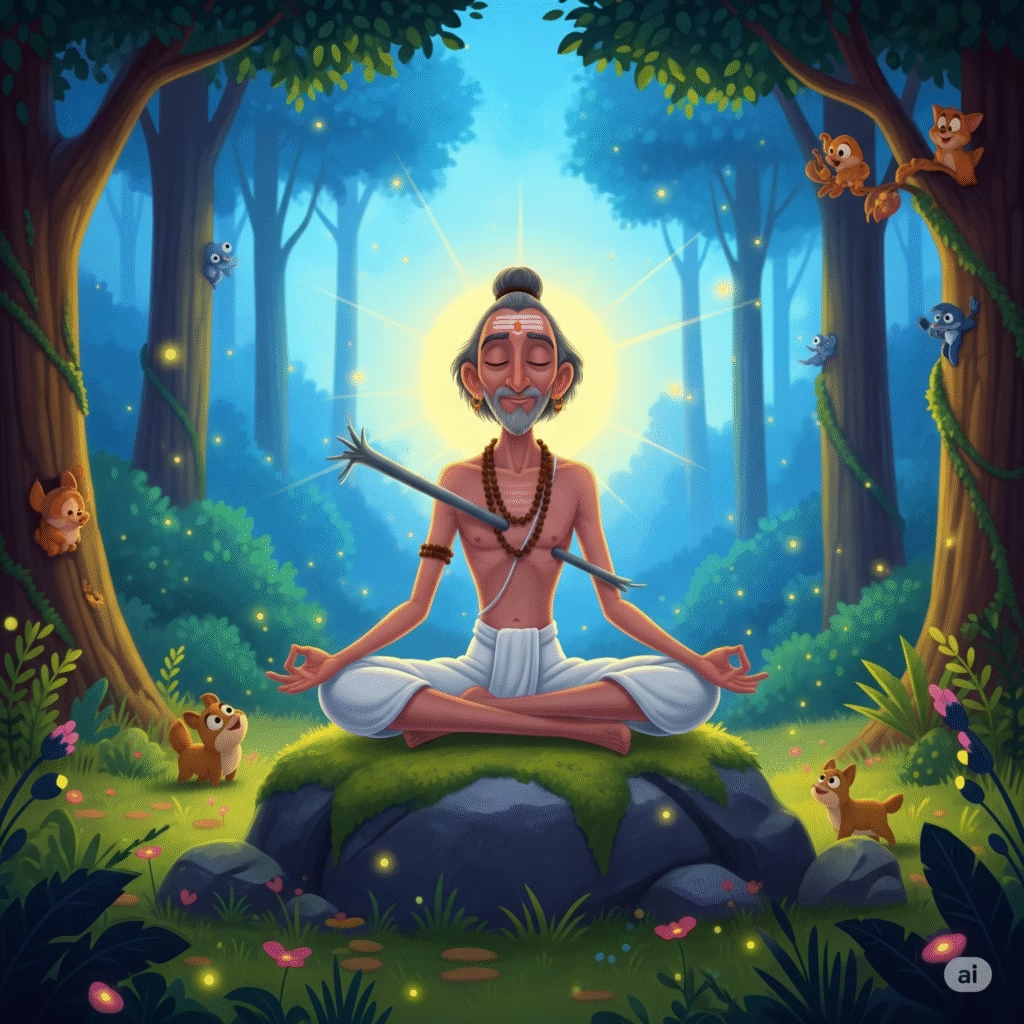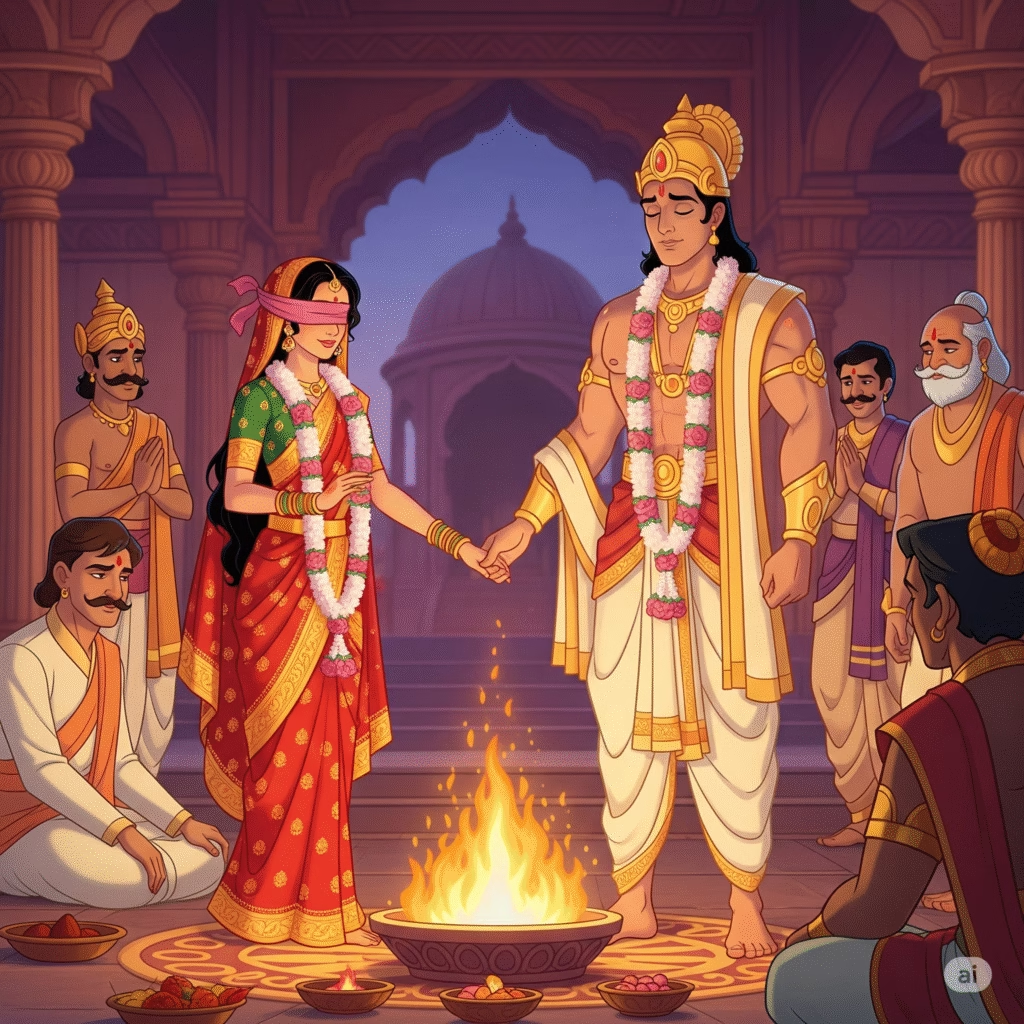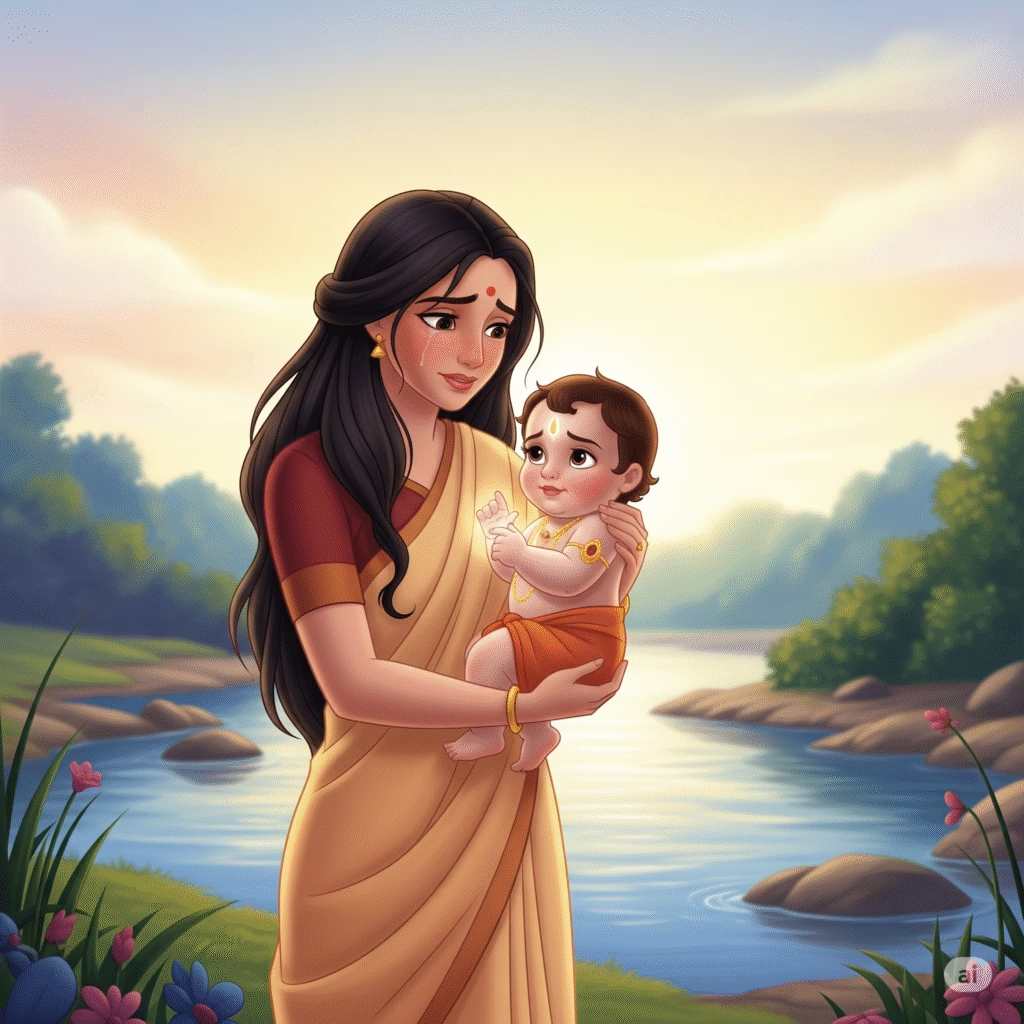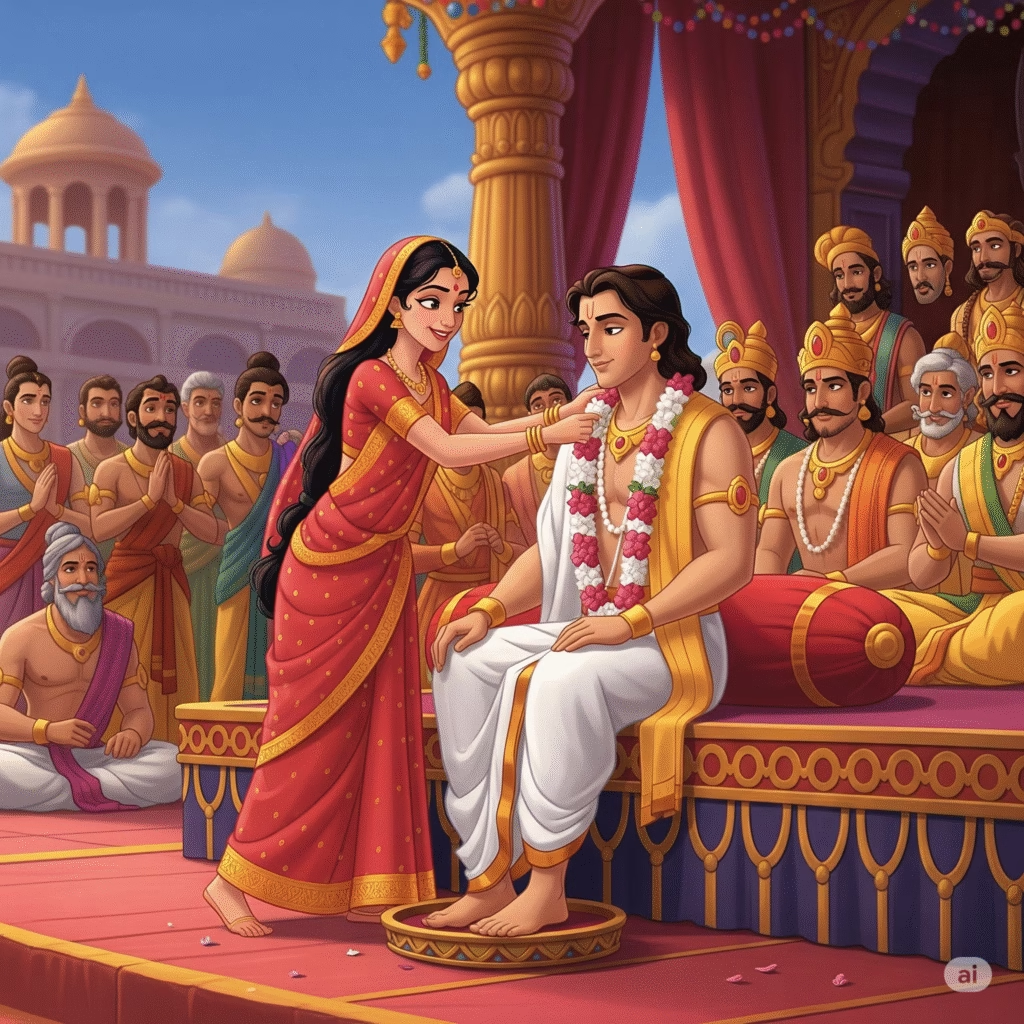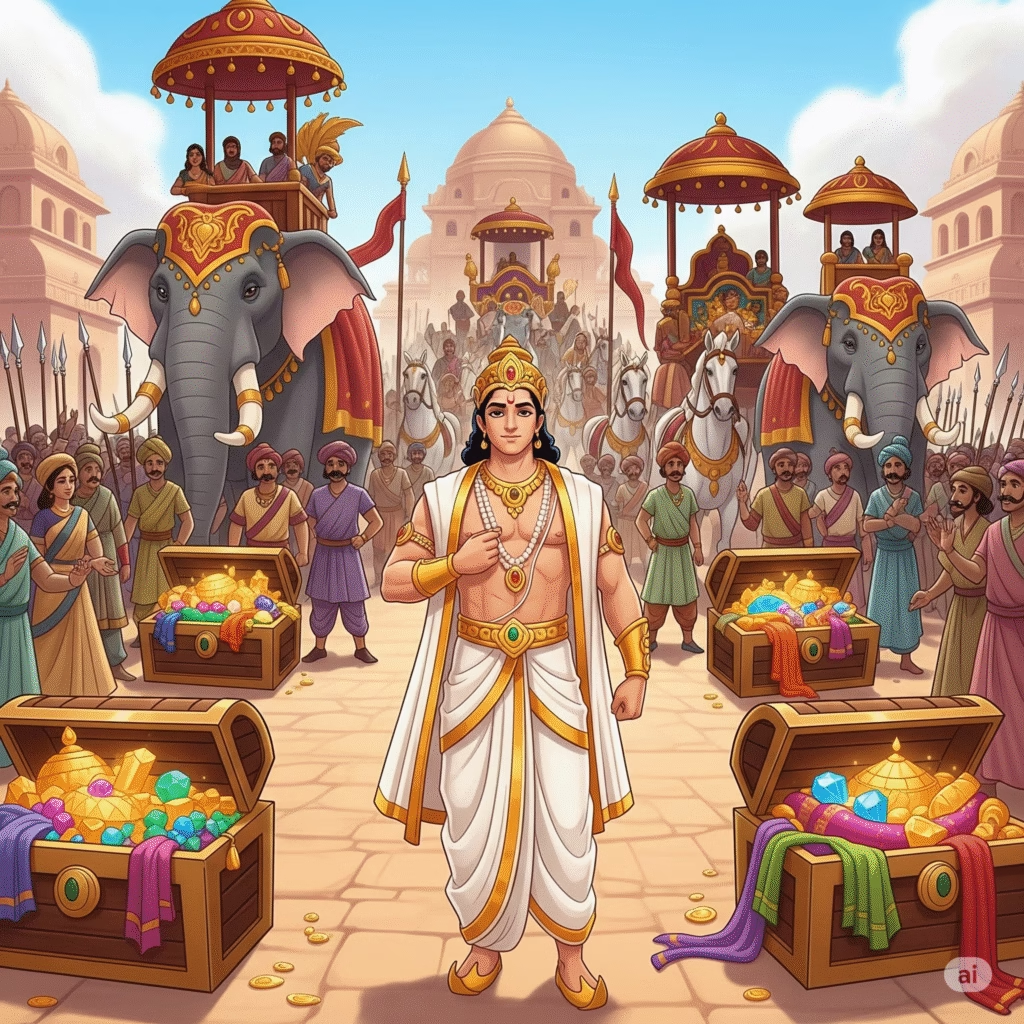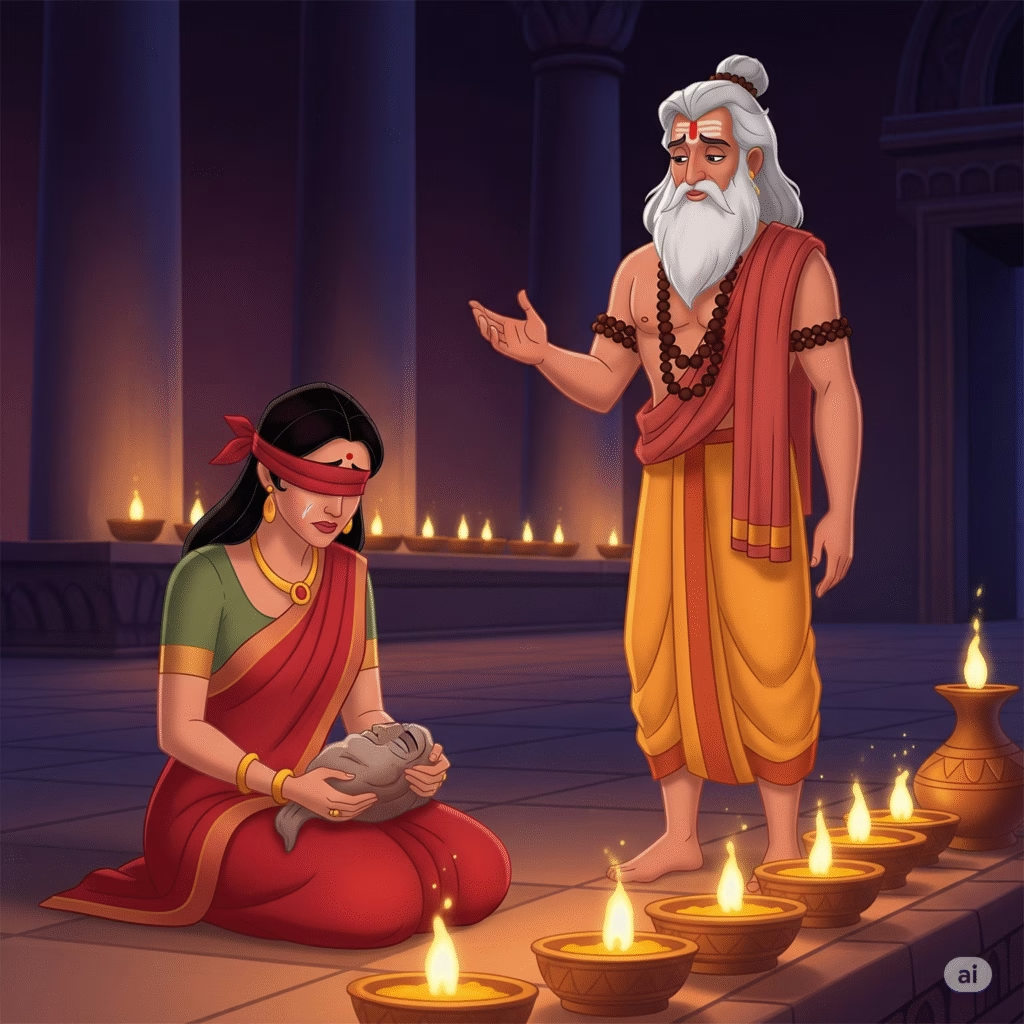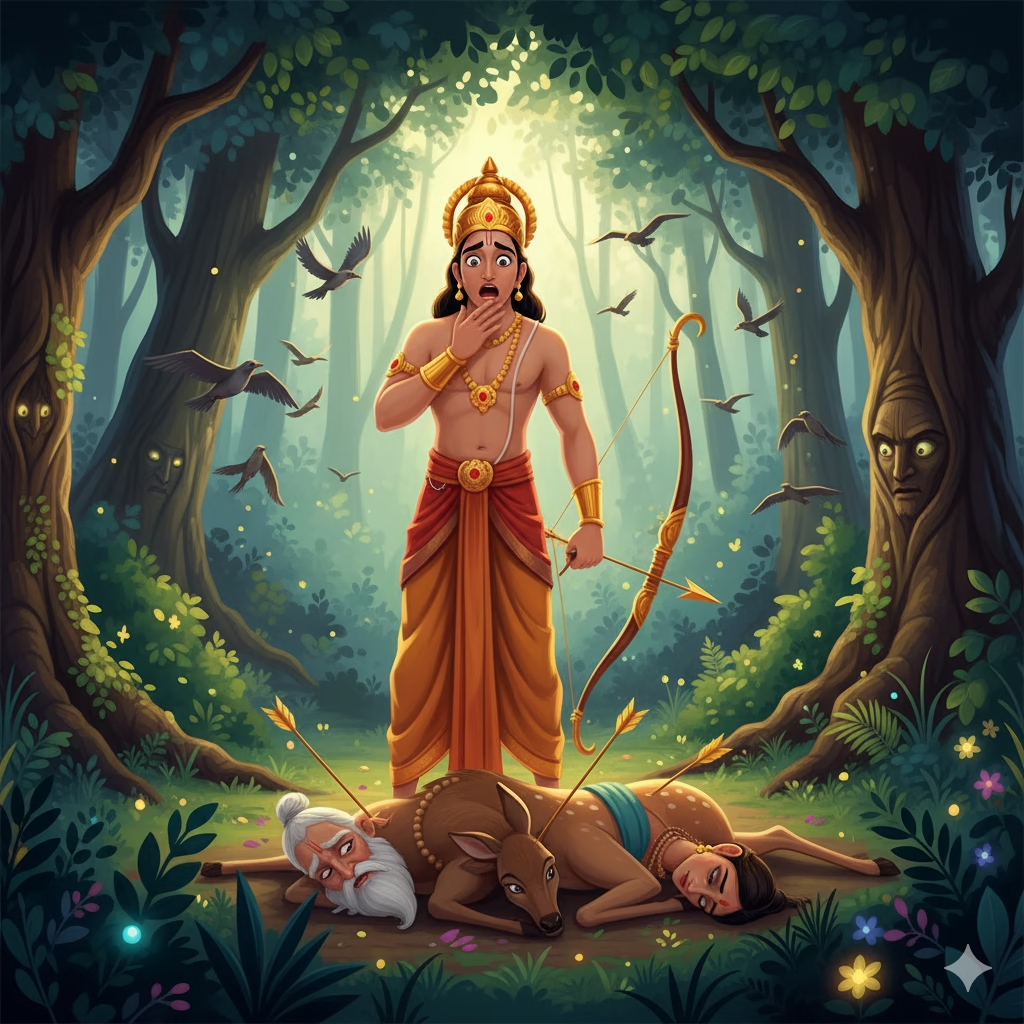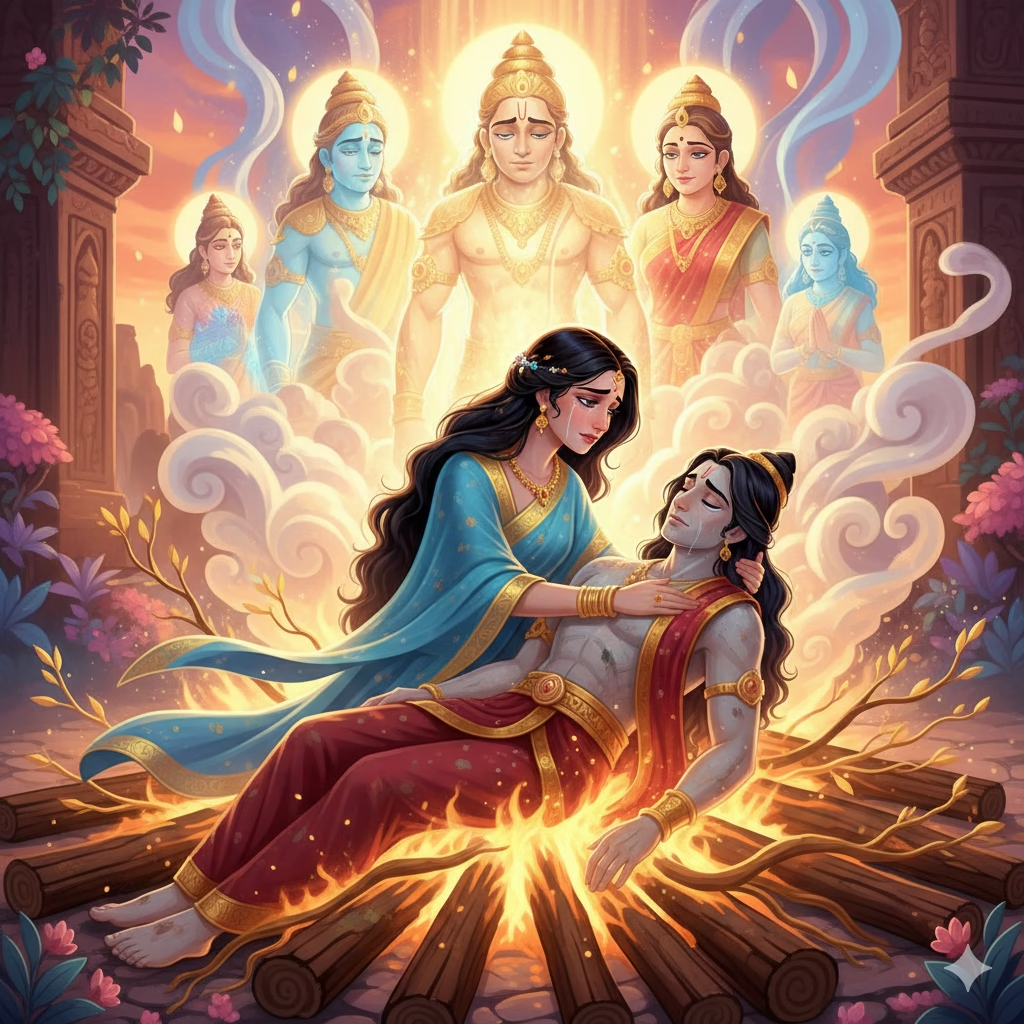A different drama unfolded in the sky before the chariots thundered through Kurukshetra, before Arjun strung his bow or Krishna broke his silence. The seeds of a mighty destiny were sown—not in war but in a celestial courtroom of desire, restraint, and consequence.
There sat a king among the gods—Mahabhisha. He was from the noble Ikshvaku lineage. He was the conqueror of kings, the purifier of realms, the performer of immense sacrifices, and was honest and truthful. King Mahabhisha had performed hundreds of sacrifices—Ashvamedhas, Vajpyeyas—rituals that could shake the very skies. The smoke of yajnas curled into the heavens, and the Devs were pleased. After his death, Mahabhisha was honoured with a seat in heaven, shoulder to shoulder, in the celestial court of the great sages and the Immortals.
But the universe watches with eyes deeper than rituals. Entering heaven is not just a matter of action. It is about purity of intent even in the most guarded moments. The universe never wastes time on grand trials. It tests us in one small moment—a choice, a glance, a reaction—and in that moment, a lot is decided. And hence even Mahabhisha was tested. Not on a battlefield. Not in a debate. But in a single moment of desire.
One day Devs and Rajrishis assembled in the court of Brahma. Mahabhisha, now counted as one of them, stood amidst divine company. At that moment, Ganga, the radiant river goddess, entered the assembly. A sudden gust of wind stirred her garments, and for a moment her beauty shone unveiled. At this moment all present there lowered their eyes, except one—Mahabhisha. He, drawn by desire, curiosity, and something deeper, kept staring. The moment froze. Ganga met his eyes, and in that stolen glance passed a thousand unspoken thoughts.
Brahma is the creator, and his gaze is softer than his judgment but he could not overlook this quiet fall from grace. For in the realm of the detached, even a flicker of desire is a blemish—a smoke smudge on the mirror of heaven. With the calm authority of eternal law, he pronounced his verdict. “Mahabhisha,” he said, not with wrath but with weight, “you shall be born again on Earth.” Then he turned to Ganga, whose eyes had met the gaze of Mahabhisha with unspoken fire, “You too shall descend to the world of men. Your longing will draw you to him again. But know this: love, once kindled in the mortal world, always comes with consequences.”
And so the universe, in its mysterious compassion, did not cast them out in anger. It sent them down together—not as punishment, but as a lesson wrapped in lifetimes to learn what desire is, to understand what love demands, and to see attachment in disguise of devotion must be tested, again and again, until it ripens into something selfless and pure. For only when a soul walks this circle of yearning, loss, and letting go and comes out unburnt—only then is it truly ready for higher realms. But there is another thing. The universe is never in a hurry. It waits. It watches. It gives us chance after chance, lifetime after lifetime, because it knows that even falling is a part of the path upward.
Elsewhere, another story tightens its grip. The eight Vasus—elemental gods of wind, water, fire, space, and more—were wandering the Earth with their wives. One of the Vasus’ wives noticed a magnificent cow grazing. She was Nandini, the daughter of sage Vasishta and Mata Surbhi (daughter of Daksha Prajapati). Entranced by her beauty and divine nature, the wife of the Vasu desired to possess the cow. The Vasu, perhaps out of love or maybe perhaps out of indulgence, gave in and stole the cow.
But Vasishta was no ordinary sage. He came to know about this theft through his powers. Enraged at the theft, he cursed the Vasus, “You shall be born as mortals on Earth.” The Vasus, realizing their sin, then pleaded, and the sage relented—partially. “Seven of you shall be freed quickly from the burden of mortality. But the one who led this theft—Dyu, the chief instigator—shall live a long life on Earth. One of great suffering and glory.”
Distraught and desperate, the Vasus approached Ganga, now destined to walk on the Earth. The Vasus begged Ganga, “Be our mother. Bear us as your children in the mortal world. But release us at birth, before we suffer the weight of human existence. No woman on Earth is capable of bearing us in her womb.” Ganga agreed. With grace and resolve, she descended to Earth, waiting for the right soul to unite with her.
Before the Mahabharat becomes the tale of princes, war, and dharma, it begins with desire, consequence, and the pain of choice. Mahabhisha’s downfall was not a sin—it was a moment of unguarded attention. Ganga’s punishment was not evil—it was a longing unexpressed and misjudged. The Vasus, too, were not villains—they were divine beings caught in momentary indulgence.
Journaling Prompts
- Don’t you ever feel disconnected from your higher self—that calmer, more attentive, and aware version of you—because of fleeting desires, uncontrolled impulses, or choices driven by others?
- How often do you trade lasting peace for a moment’s thrill?
- What desire do you harbor quietly, knowing it distances you from your true self? Are you ready to face it honestly today?

